Split transactions has been released on the iOS and Android mobile apps! You’re finally able to split a transaction between multiple categories; tweaking the date, payee and transfer status as needed, across both mobile apps.
You can also expect to see a blog post soon which provides an update on the status of mobile at PocketSmith, discussing how our thinking has progressed on from the blog post published at the end of last year.
Thanks everyone for your patience while we got split transactions on mobile figured out!

We’ve released a new option for the Net Worth Dashboard widget which allows you to see your net worth over time!
This option appears under “Chart type” in the widget configuration settings.
You can also find it at the top of the Net Worth page too — just click the graph icon on the right of the title bar to toggle on and off.
This is just the first iteration for this graph — we have other plans that will allow you to see your net worth at a specific time in the past using the graph and more. Stay tuned!

PocketSmith’s updated web user interface has been released! This is the first major change to the overall feel of the application since 2015, and it’s laser-focused on the areas of the application that everyone interacts with daily — primarily the toolbar and sidebar.
Have a read of the blog post here about the changes, and you’ll quickly notice the change the next time that you log in!

A new express CSV file importer has been released for people who are looking to move to PocketSmith as an alternative to Monarch Money!
This importer will bring in all your accounts, transactions, categories and labels that you’ve used in Monarch Money, so that you receive the comfiest transition to PocketSmith.

A new version of the PocketSmith desktop application has been released, bringing us up to version 0.5.0. This brings a large number of improvements, including a new menu bar (macOS)/taskbar (Windows), or panel (Linux) Icon, which allows you to sync feeds without opening the application.
Navigation has been improved to match the main web application. There’s also a new Actions menu, letting you perform common set-up actions from one location. We’ve also included a new build for ARM64 as well, so you can run the PocketSmith desktop app on your Raspberry Pi if you want to!
Head over to the download page on our website to grab the new version.
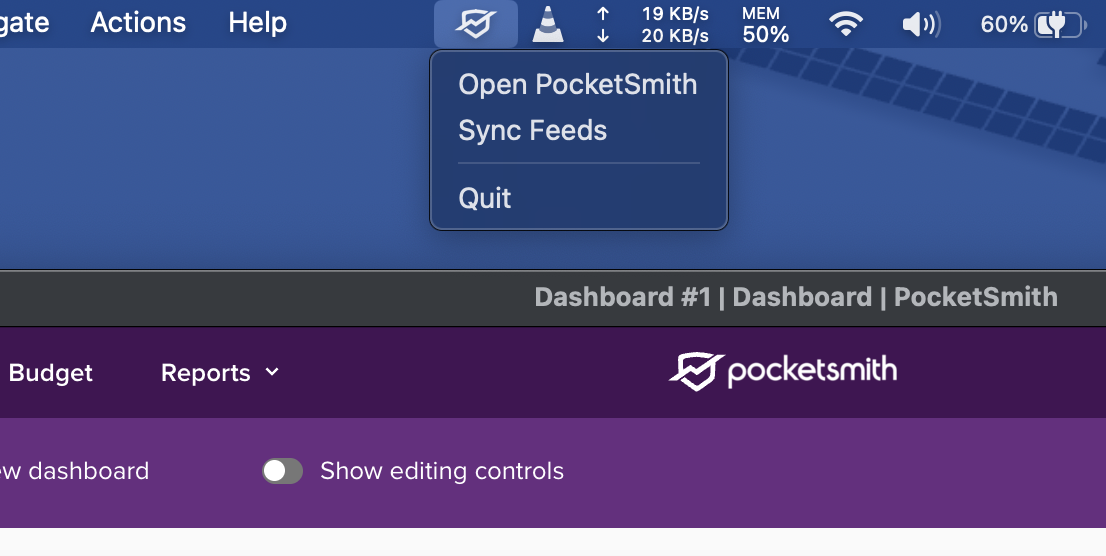
We have introduced a default category structure for the categories that come from bank feed automatic categorisation, as well as other PFMs. These introduce sensible parent categories to group these together, as well as attractive default colors and a relevant category type.
While this primarily affects people getting set up with PocketSmith for the first time, you’re also able to apply this category structure to your existing categories in PocketSmith by clicking the “Auto-organise” button in the Categories page toolbar.
You can read more about the default category structure on our Learn Centre here.
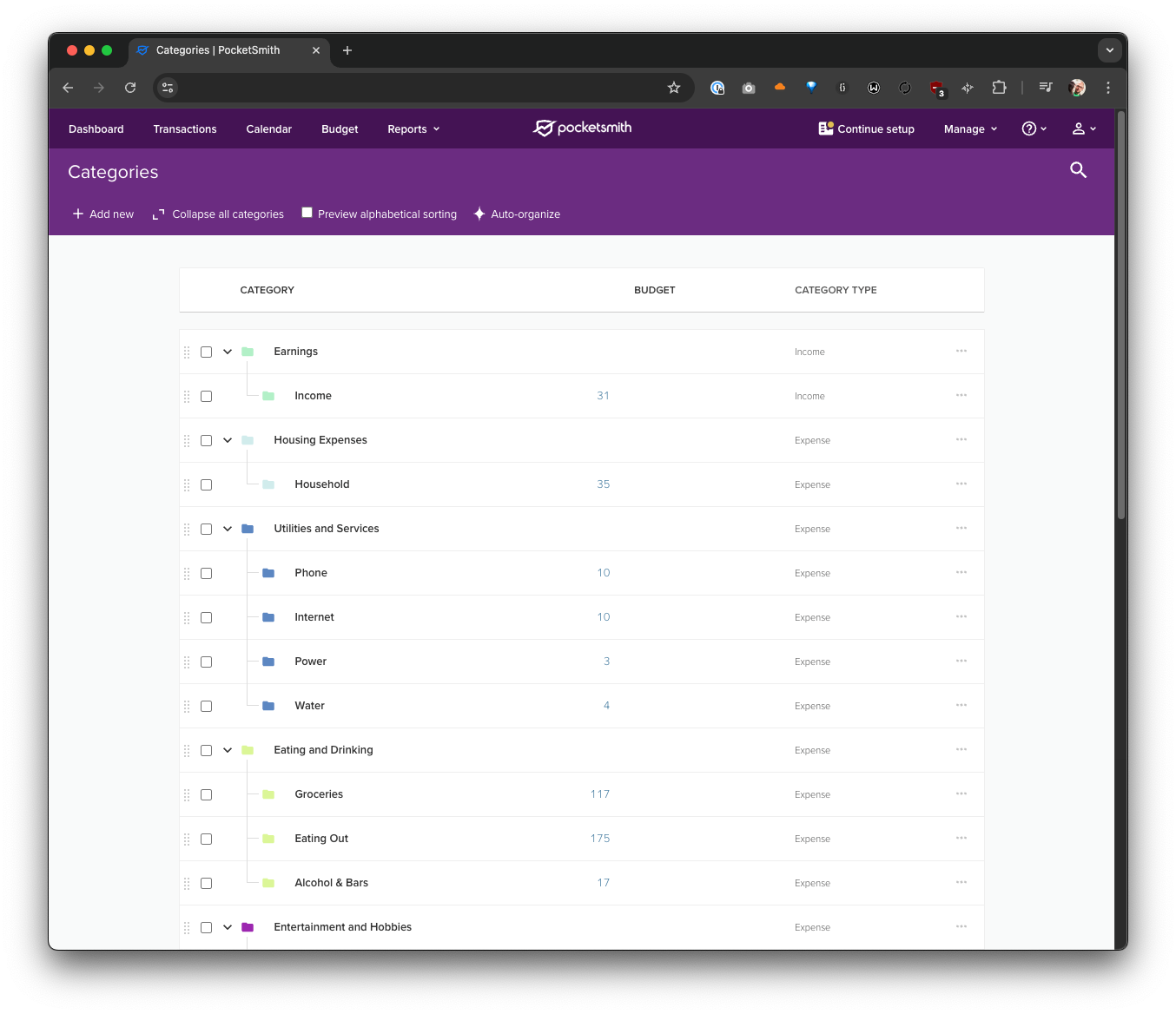
Family Group Discounts have been released! This is a way for existing PocketSmith subscribers to pay for their family member’s monthly PocketSmith subscriptions, for any plan level, and get a 40% discount.
You can read more details on how Family Group Discounts work on our blog here.
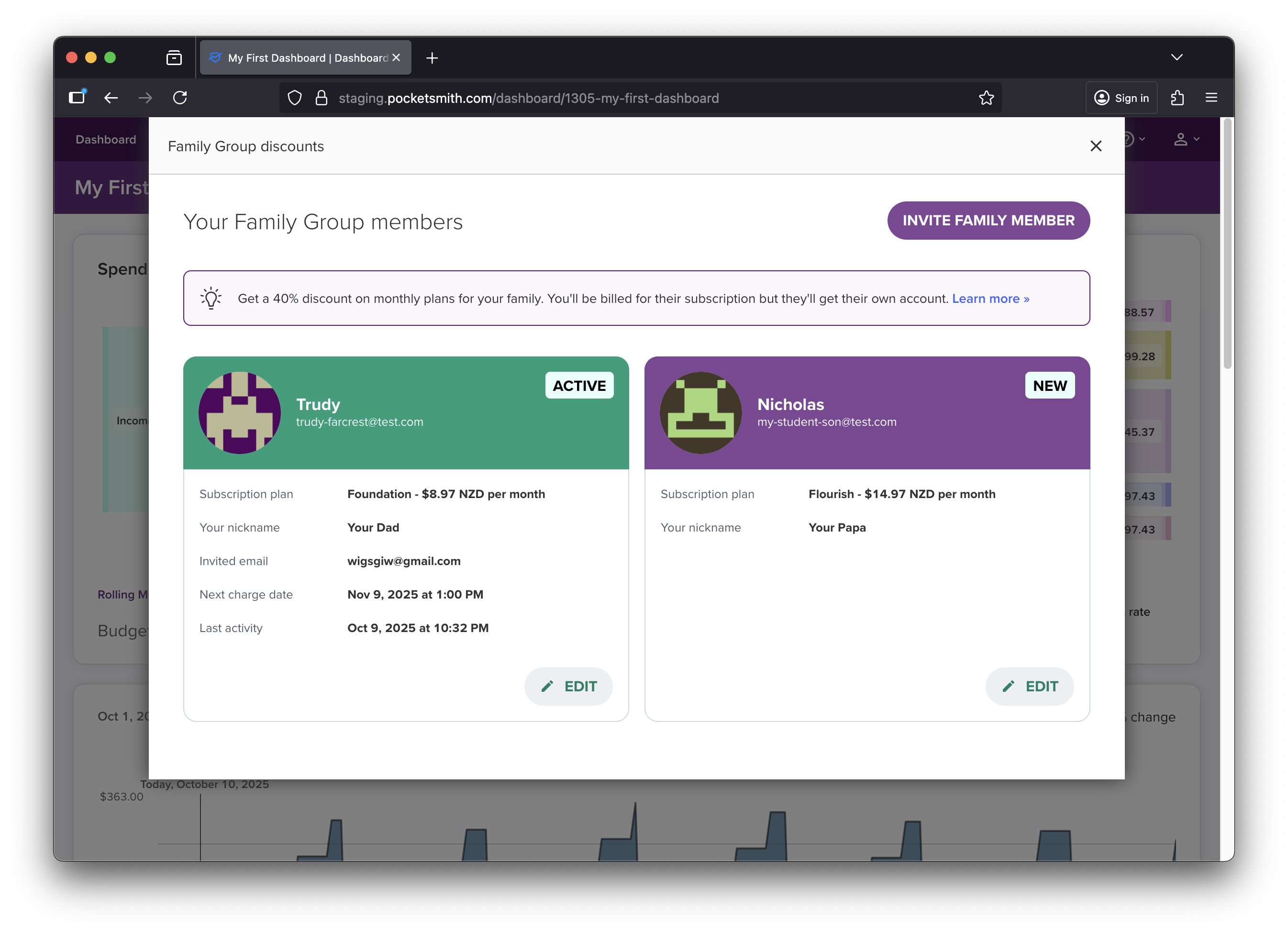
Hot on the heels of the release of saved reports for Income & Expense a couple of weeks ago, categories can now be hidden on a per-saved-report basis, instead of globally for all reports as it did previously.
When you have any hidden categories, a menu item that opens a management modal appears below the toggles in the sidebar. You can adjust what categories are hidden within this, and then either view those changes temporarily, or save them against the report that you’re viewing.
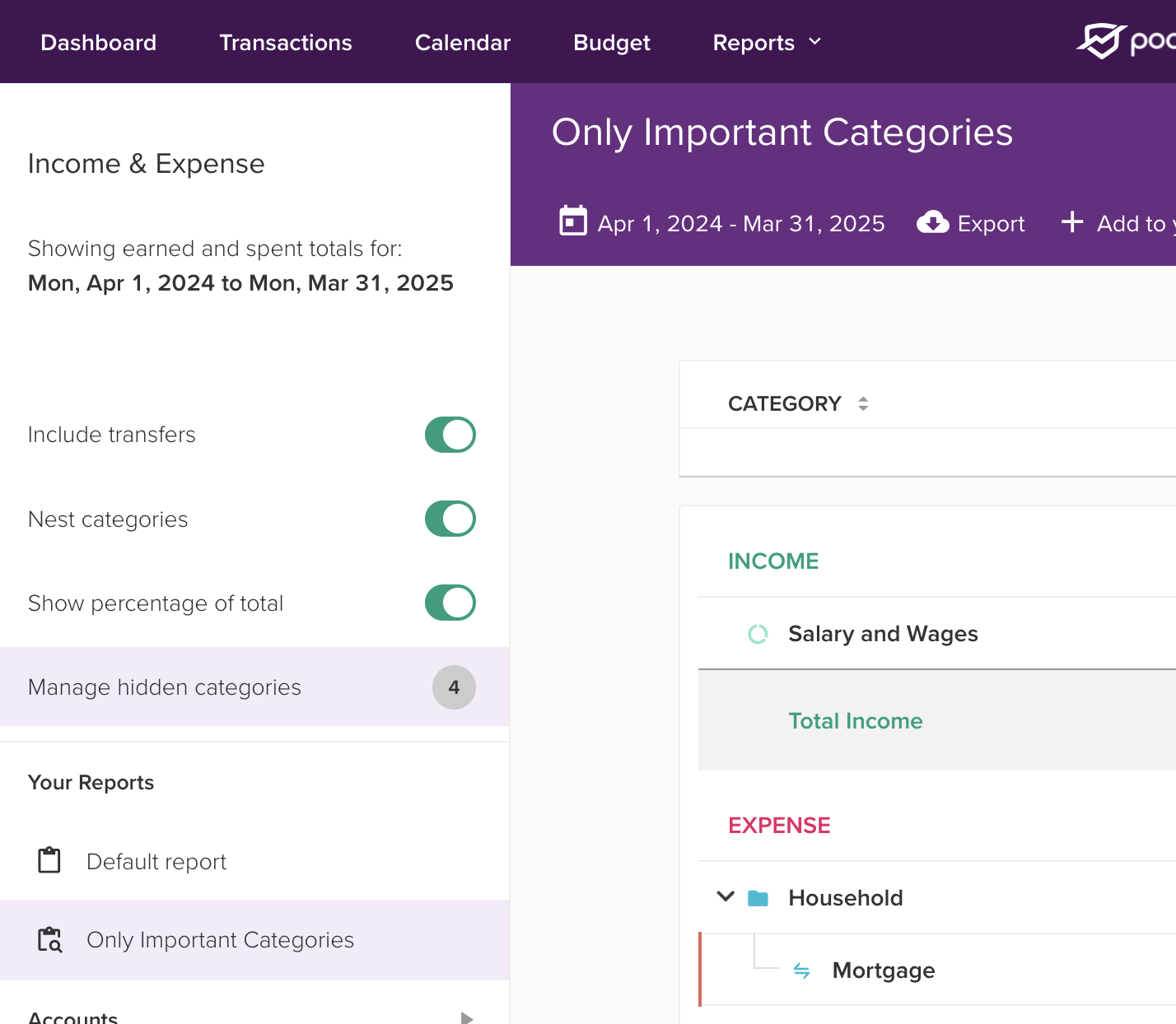
Bill categories can now have a grace period set against them on a category level. This grace period means the bill won’t show as overdue, until the chosen number of days after the due date has passed.
This is useful if you experience any delay in bill transactions appearing in PocketSmith, despite the payment having left your account. Previously the bill would show as “overdue” during this delay – now if you enter a grace period in days, it’ll show as an “upcoming” bill instead during the delay. Also helpful if you like to live life on the edge and delay paying your bills, but still stay on track with Safe Balance!
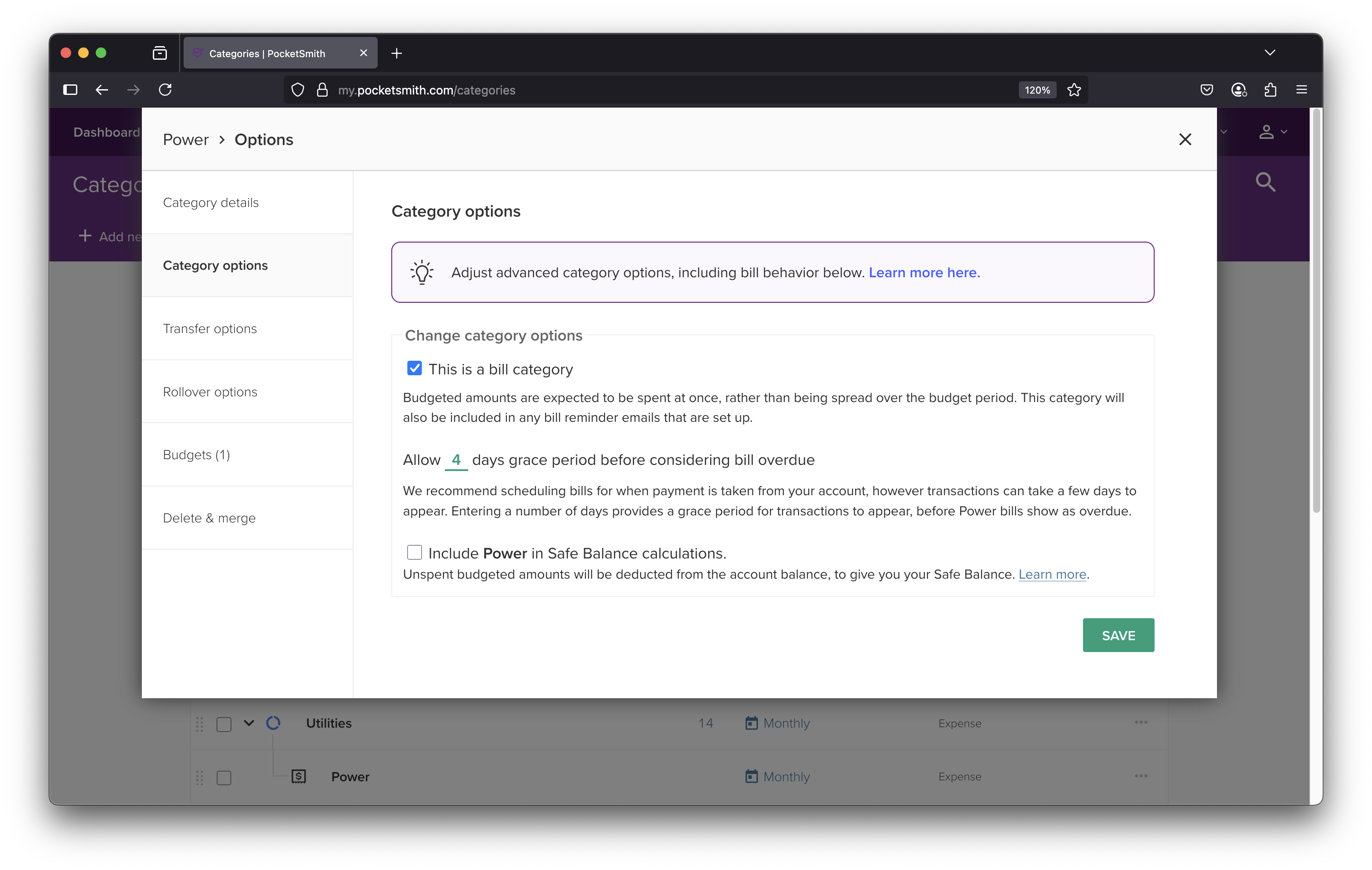
A change that prevents transfer categories from being rolled-up into non-transfer categories, and vice versa, has been released for the Income and Expense and Budget pages.
As transfer categories fundamentally differ from non-transfer categories, rolling one into the other leads to a number of quirks, such as the income part of a transfer being seen as a refund when rolled up into an expense category, and other various nonsense.
You can find the full explanation of this behaviour on the Learn Center.

You’re now able to save your favourite reports in the Income & Expense Statement! Just configure things as you’d like, then click “+ Add to your reports” in the toolbar, provide a name for your report, and it’ll appear in the sidebar under “Your Reports”.
All configuration options are saved, including account selections, date ranges and checkbox options. If you edit a saved report, you can add it as a duplicate report or save those changes.
This’ll make setting up a range of reports for quick access a cinch, without having to painstakingly set things up every time you want to refer to a specific set of numbers!
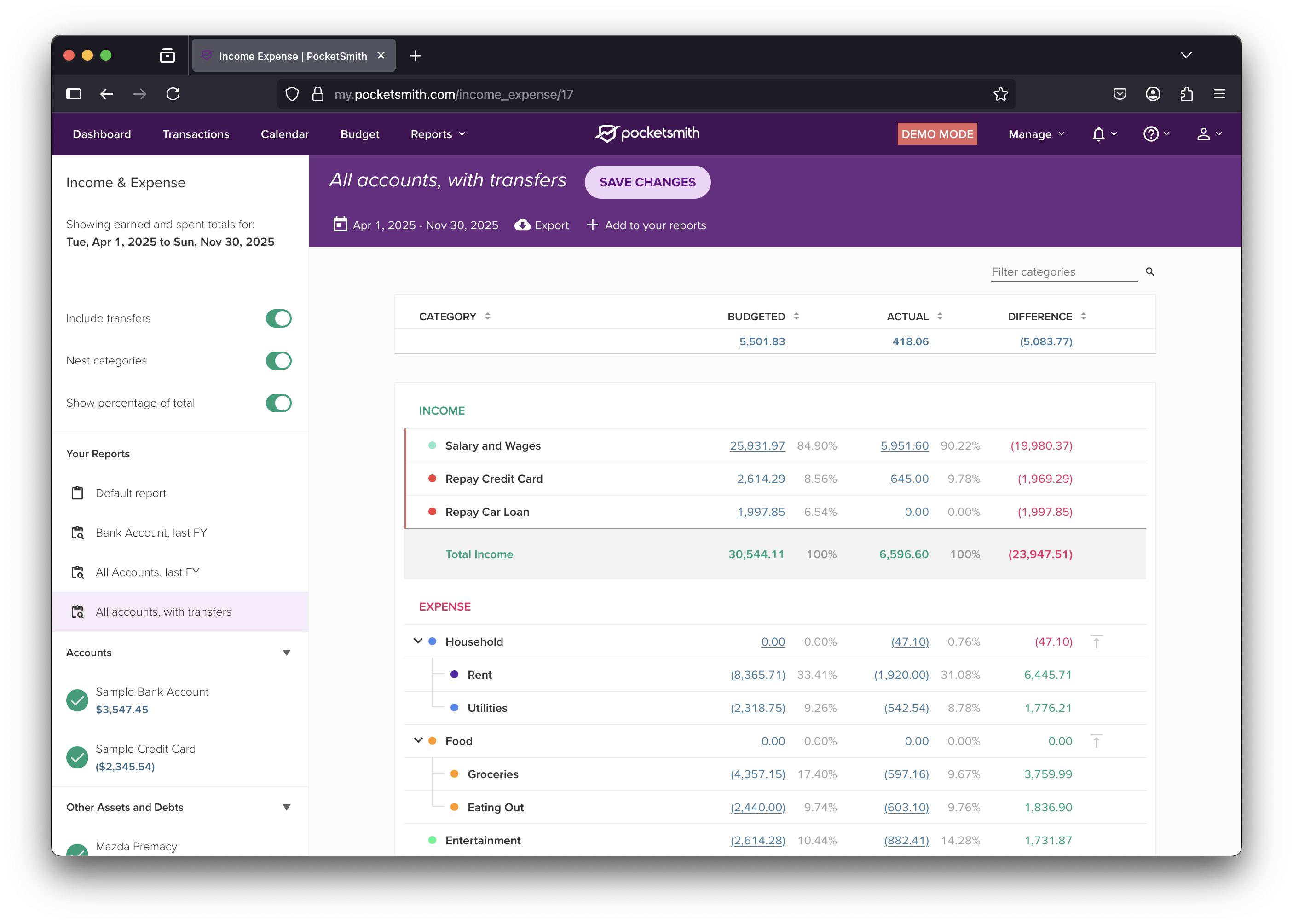
Finally, you’ll no longer need to select colours for all sub-categories and budgets, when editing a budget’s colour.
Relevant checkboxes are now shown within the category edit form to apply the colour you’ve selected for the category to a) all budgets in the category, b) all sub-categories and c) all budgets in those subcategories.
This makes getting your category colours in sync with one another far easier, at long last.
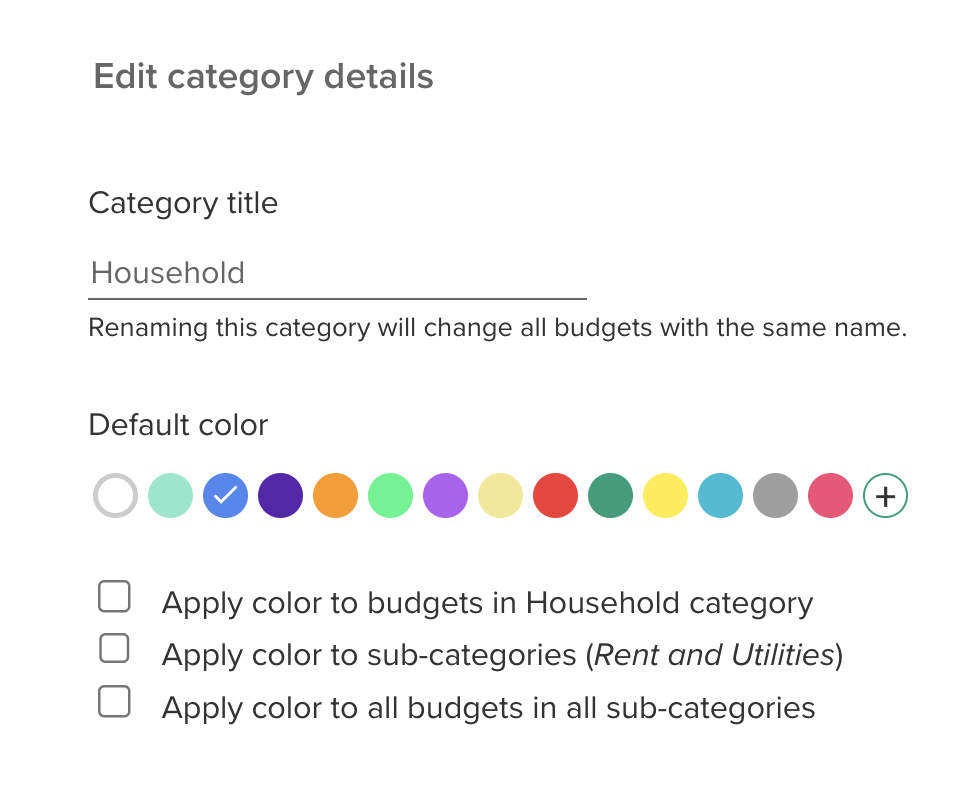
A new option to use a separate category for your forecast interest has been released into beta. This solves the problem of there being no association between interest transactions that appear in an account, and the forecasted interest shown on the Calendar.
If you toggle on this option in the Interest Settings preferences area for an account, a new category will be added with a corresponding name, nested under a top-level “Interest” setting. On the categories page, this category will appear with a % symbol next to it.
You can assign interest transactions to this category, and you’ll be able to perform budget analysis for your interest in that account, as you would for any other budget.
As this is a beta feature, there may be some quirks — please let us know if you find any!
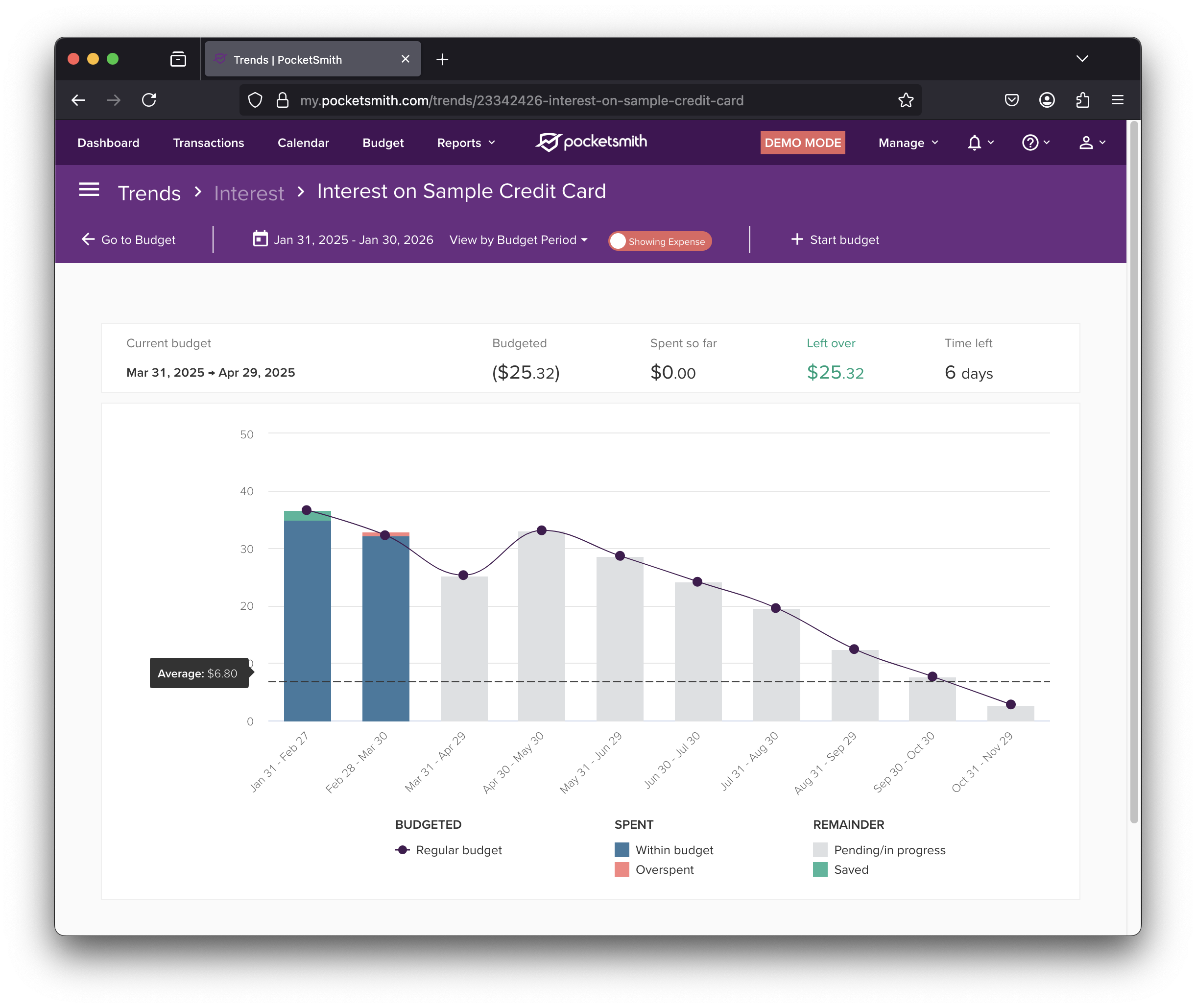
The new Transactions search in beta has received a raft of improvements, as we continue to refine the feature based on feedback. These are some notable highlights from this release:
s to open the search form, and esc to close it.If you’ve given the new transaction search a try before and switched back to legacy search, give it another go by toggling it on in your Beta Settings!
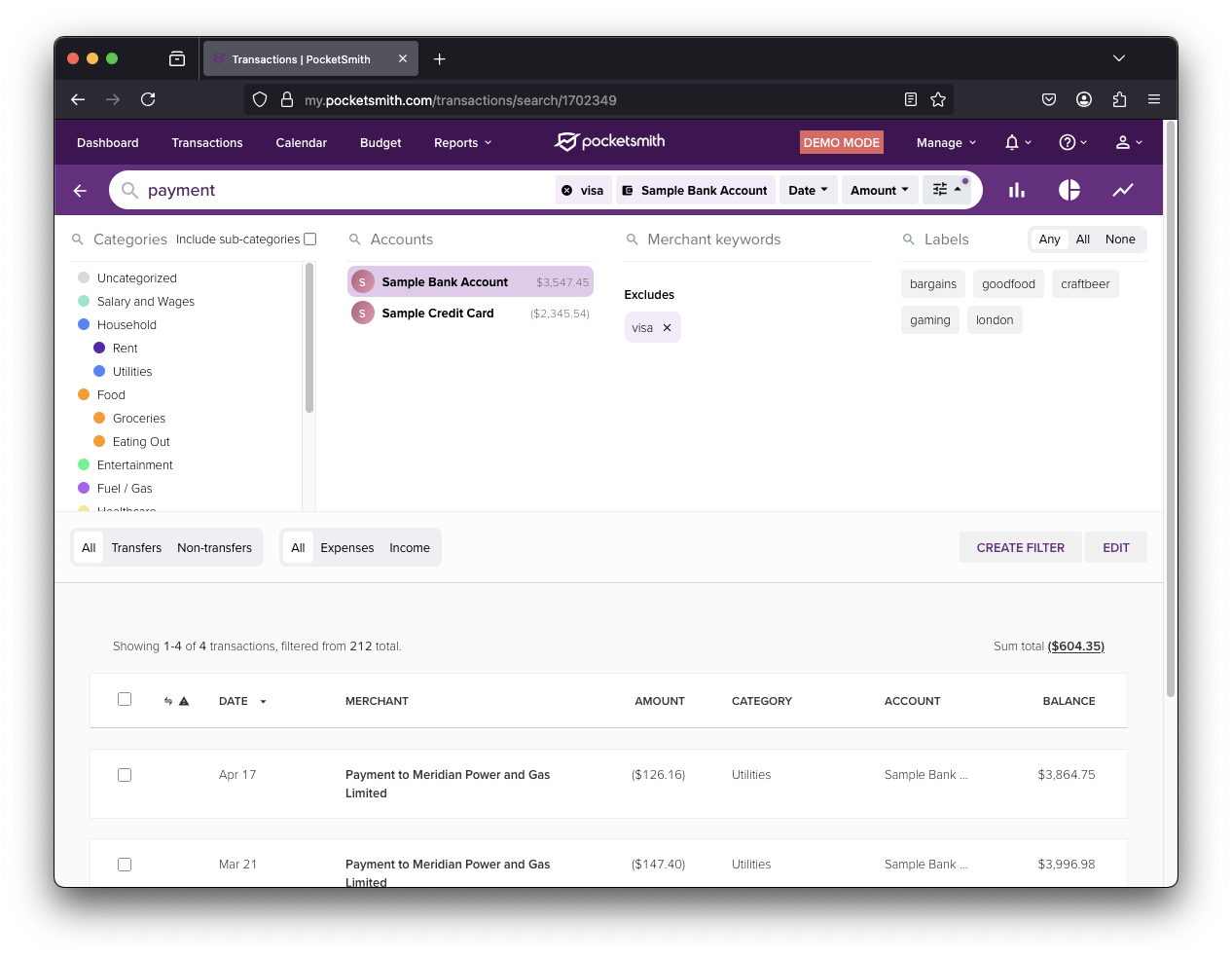
You can now drag and drop files from anywhere onto your PocketSmith window to upload them quickly!
If you drop them on an individual transaction, the file will be attached to that transaction, making attaching receipts to individual transactions far more convenient.
Alternatively, if you drop the file anywhere else on any page of the application, they’ll be added to the Attachment Inbox for assignment to a transaction later.
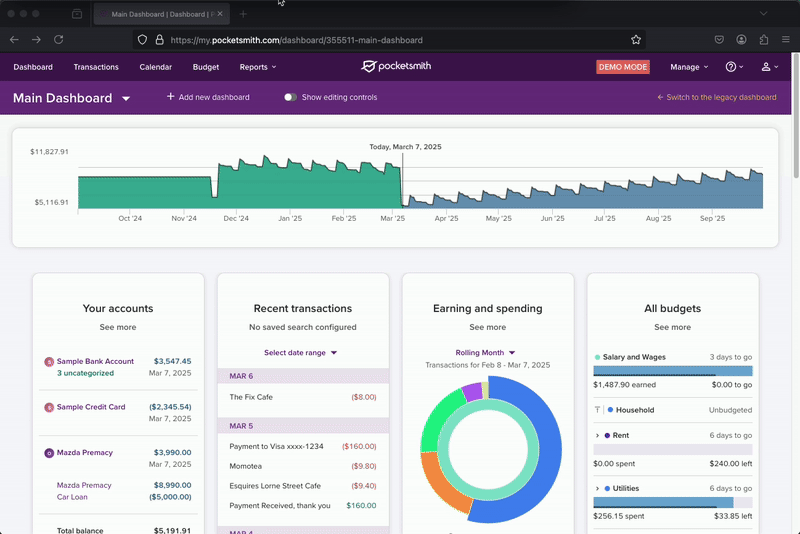
A couple of improvements have been made to the new Net Worth page, with two new toolbar toggles: Expand all sections and Hide $0 accounts.
Expand all sections allows you to see all your account balances at once, instead of only the sum total for each asset or debt type individually.
Hide $0 accounts removes all accounts with a $0 balance from view, so that old closed accounts can be easily hidden. This augments the previous addition of the option to hide any account from Net Worth.
The net worth report also now prints correctly again, with your asset and debt tables on the first pages, and the breakdown pie chart appearing on the last page.
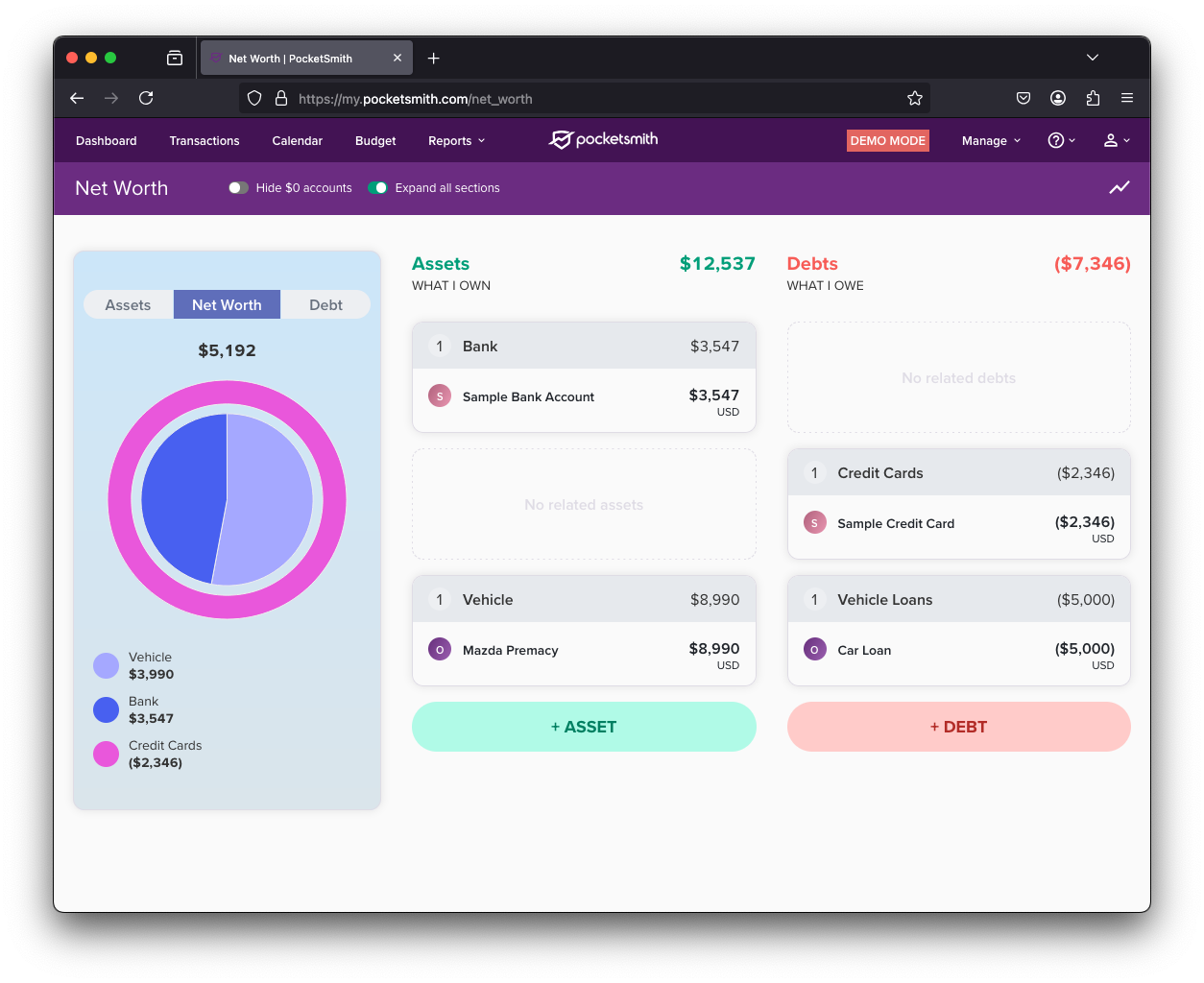
A note widget has been released for the Dashboard! A long-requested addition, this allows you to jot things down as you’re working in PocketSmith.
Keep important financial links in one place, write todo lists and check them off, or create motivational titles for your Dashboards. Add notes as a banner widget or to any column, and use the inplace editor to quickly make changes - if you’ve not locked the widget to hide those controls.
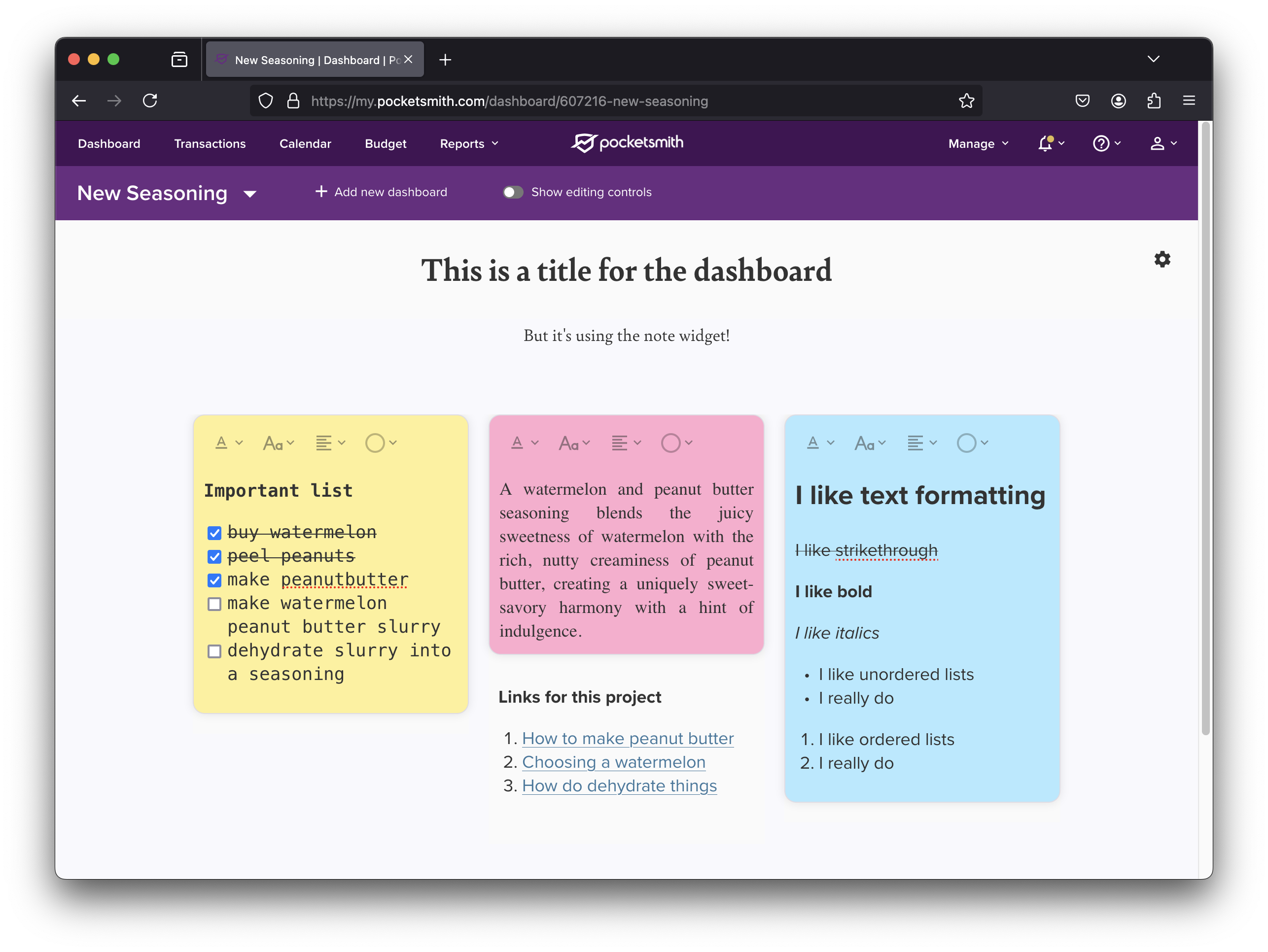
You can now set up filters to automatically forward attachments from Gmail or Google email addresses, straight into your Attachment Inbox.
When you set up forwarding for your Attachment Inbox address in Gmail, Google will send a confirmation email through to your Attachment Inbox email address. PocketSmith now catches this email, and forwards the contents through to your email address for confirmation – so you’re in complete control of what email addresses can forward to your Attachment Inbox.
With your Attachment Inbox email address set up for fowarding, you can then set up Gmail filters to send attachments straight to PocketSmith, automatically!
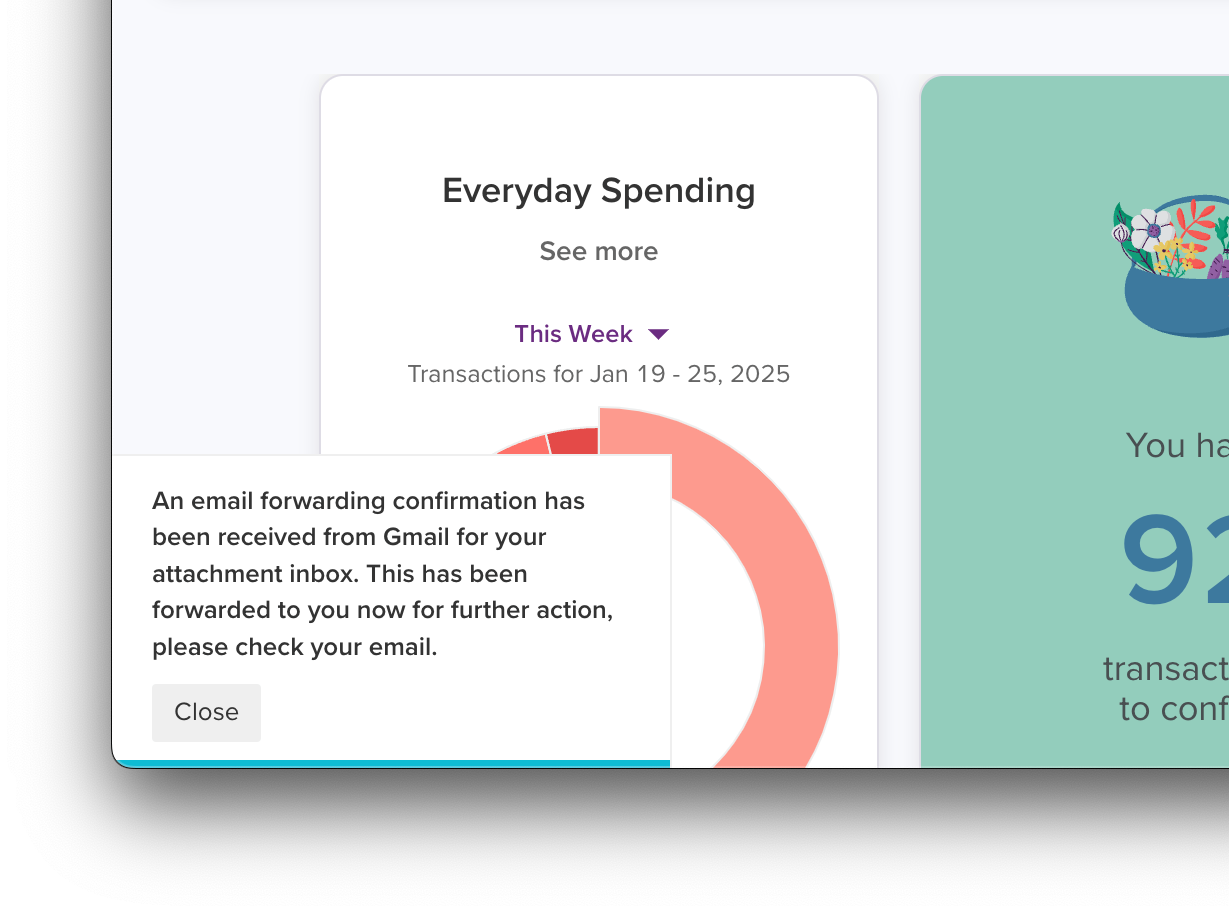
The feeds page has been redesigned to improve its layout and usability.
All of your feeds are now in a sidebar for quick access. When viewing a specific feed, you can use tabs for easily accessing different details and settings for the feed.
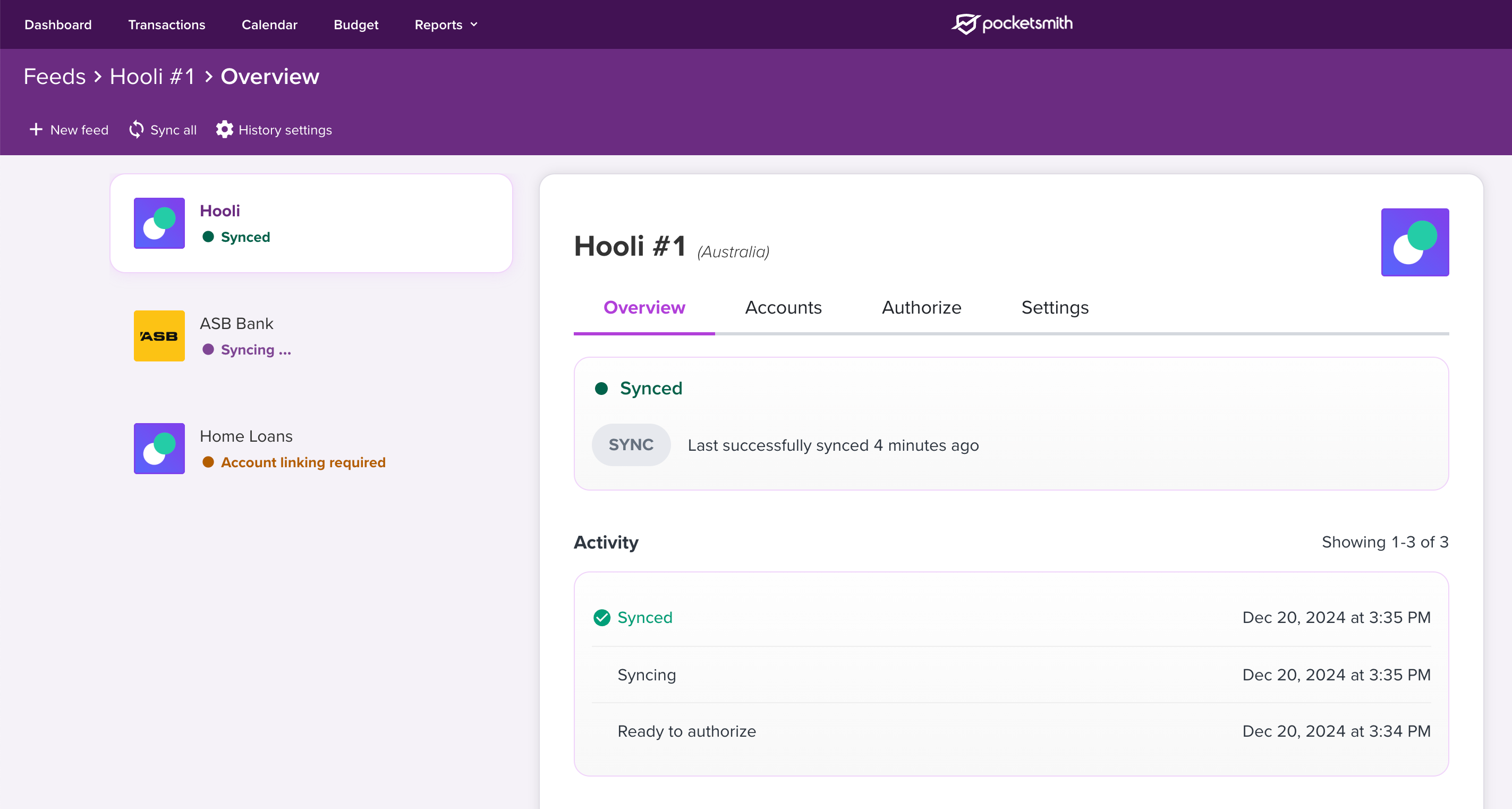
The Net Worth report has been redesigned, and it is now easier to see the breakdown of your net worth into assets and debt, as well as account types.
There is a new pie graph to visually break down your net worth, and account types now show the total of the accounts within.
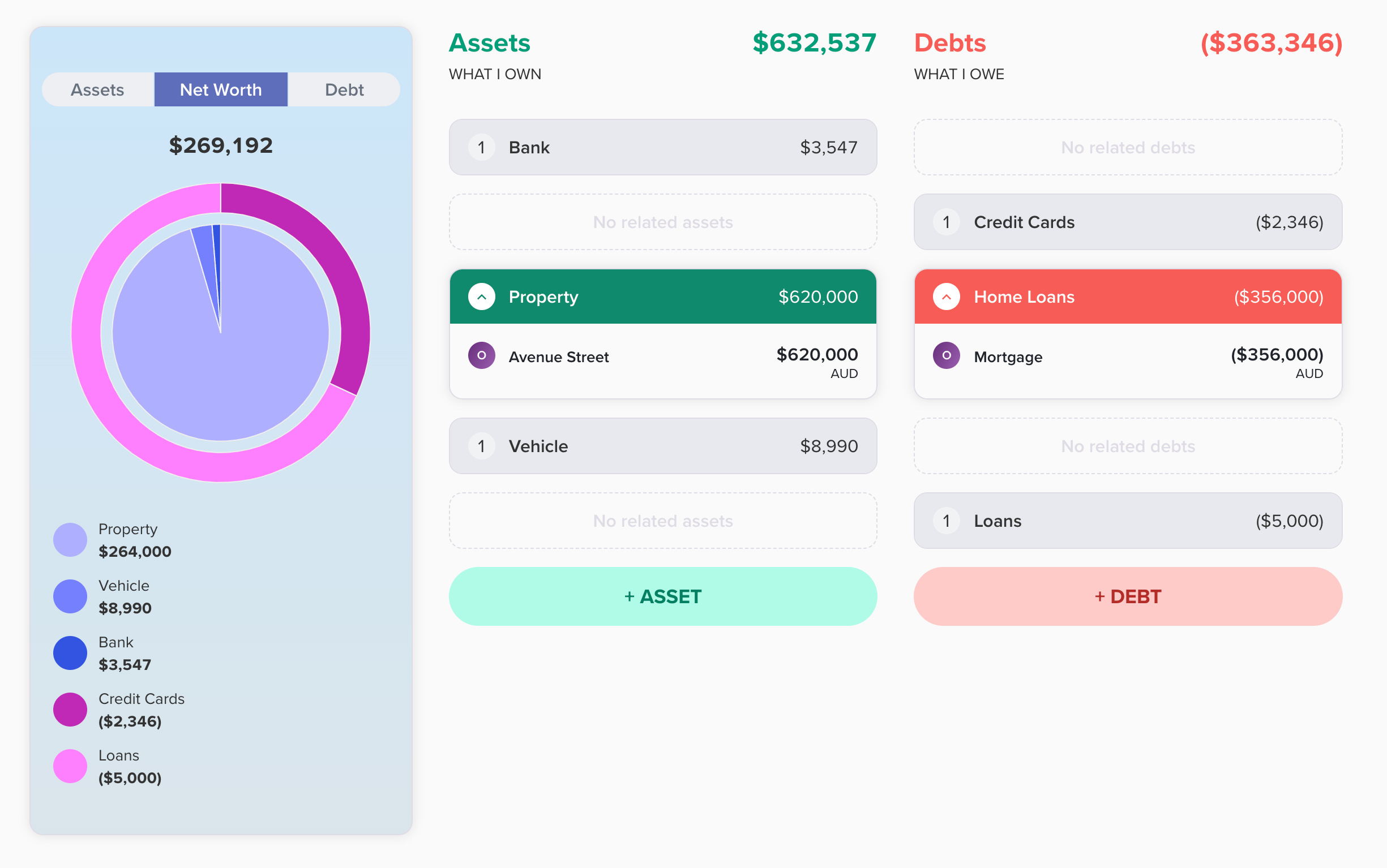
Track your net worth with the new dashboard widget, as well as the breakdown of your assets and debt into their different account types.
You have different options to choose what is shown, such as:
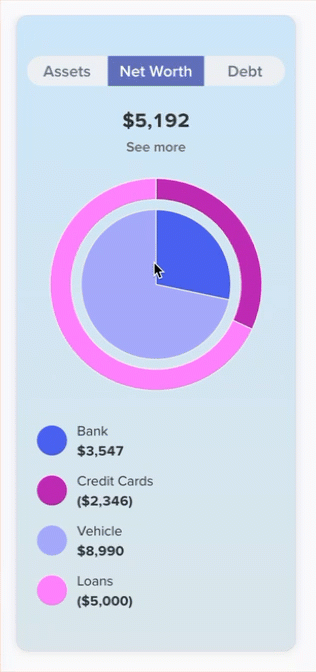
It’s now possible to exclude accounts that you don’t want to be included within the Net Worth report. This might be old accounts or ones that aren’t part of your own net worth.
Just head to the Account Summary page, click on MANAGE ACCOUNT > Other settings for the account that you want to remove from the Net Worth report and then uncheck the Include this account in Net Worth option.
It’s only possible to remove transaction accounts, not assets or liabilities created from the Net Worth report.
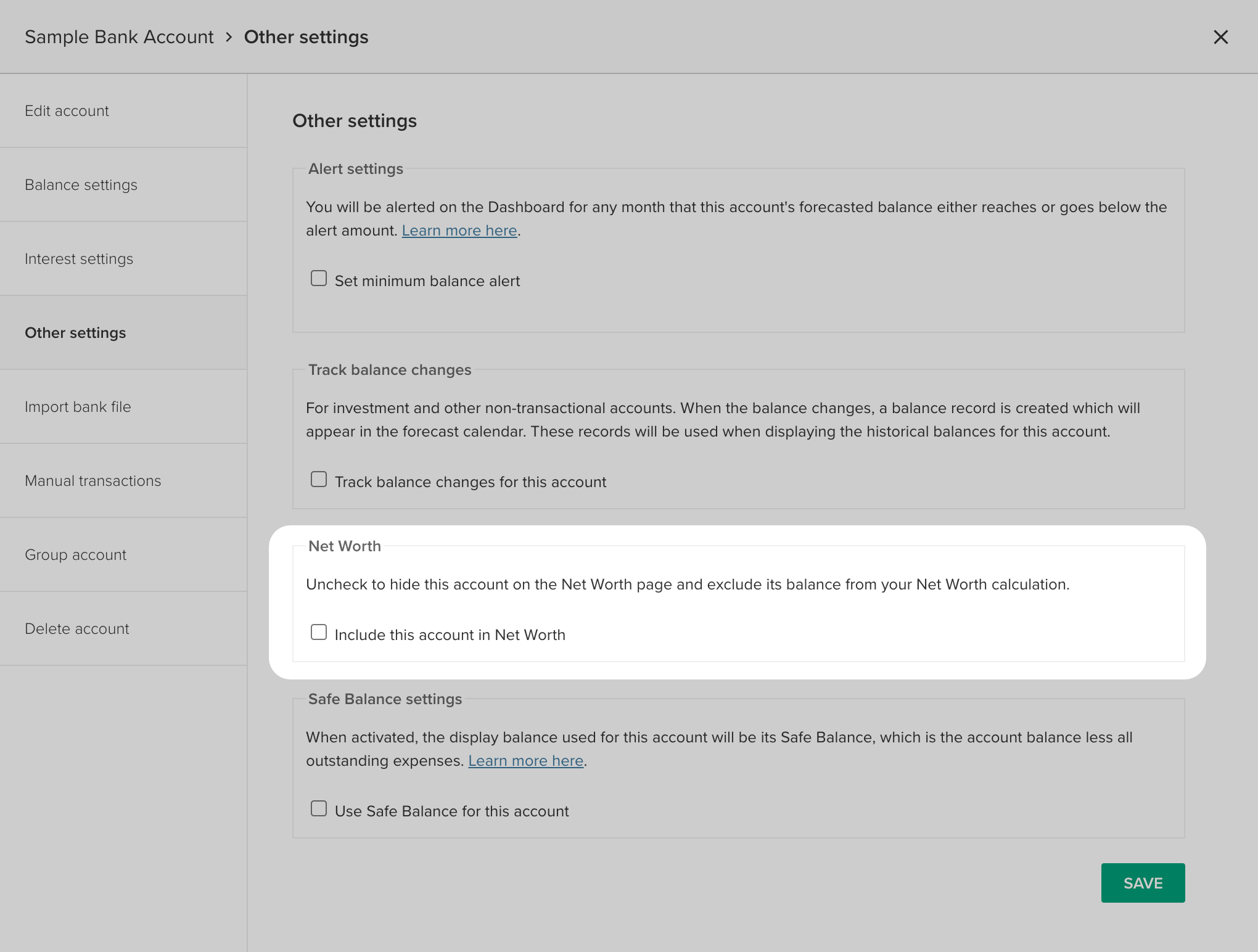
You can now quickly edit your category order and their sub-categories with a text editor, instead of dragging-and-dropping with your mouse.
This can be done by loading your existing categories into the Add new categories interface to modify them in a user-friendly editing tool.
This will only add new categories, change the category order, and adjust sub-category levels — it isn’t possible to delete categories with this interface.
For more details, check out our Learn Center guide: Restructure existing categories from a text editor.
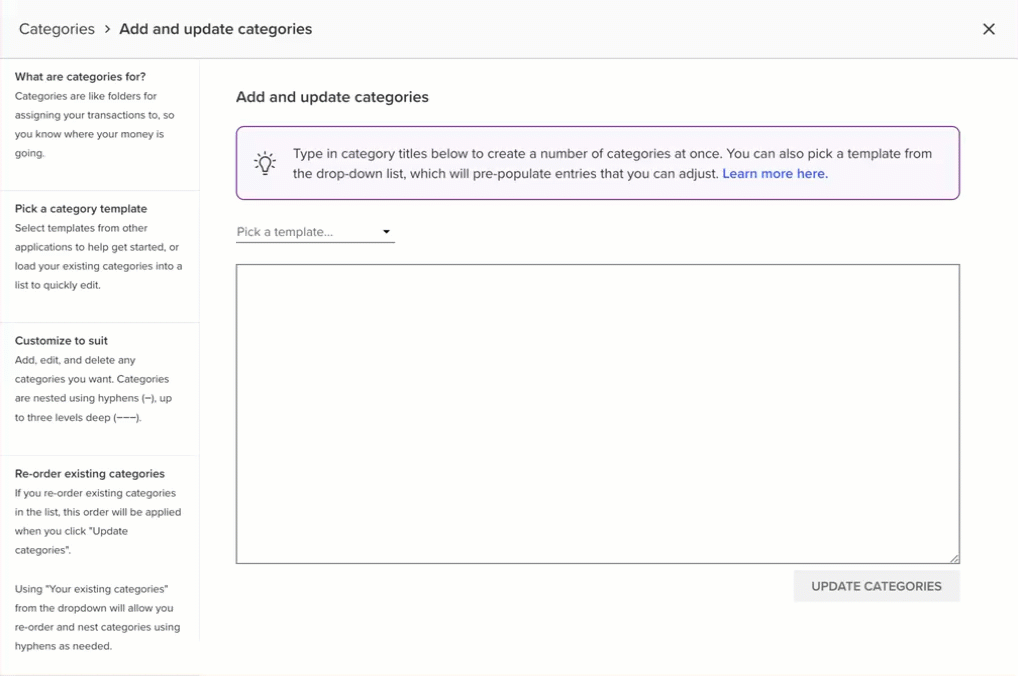
We have added the ability to customize when your monthly and yearly periods start. This adds to the existing ability to choose the starting day of the week. This allows you to view your PocketSmith data in the date ranges that work best for you.
For example: You might want to start the month of the 15th, as this is when you get paid. Or, start the year in April to match the financial year in a different country.
You can adjust these settings within PocketSmith at User preferences > Your details and options. This will affect all pages and reports where you can use the date picker.
For more details, check out our Learn Center guide: Customizing the standard date periods.
